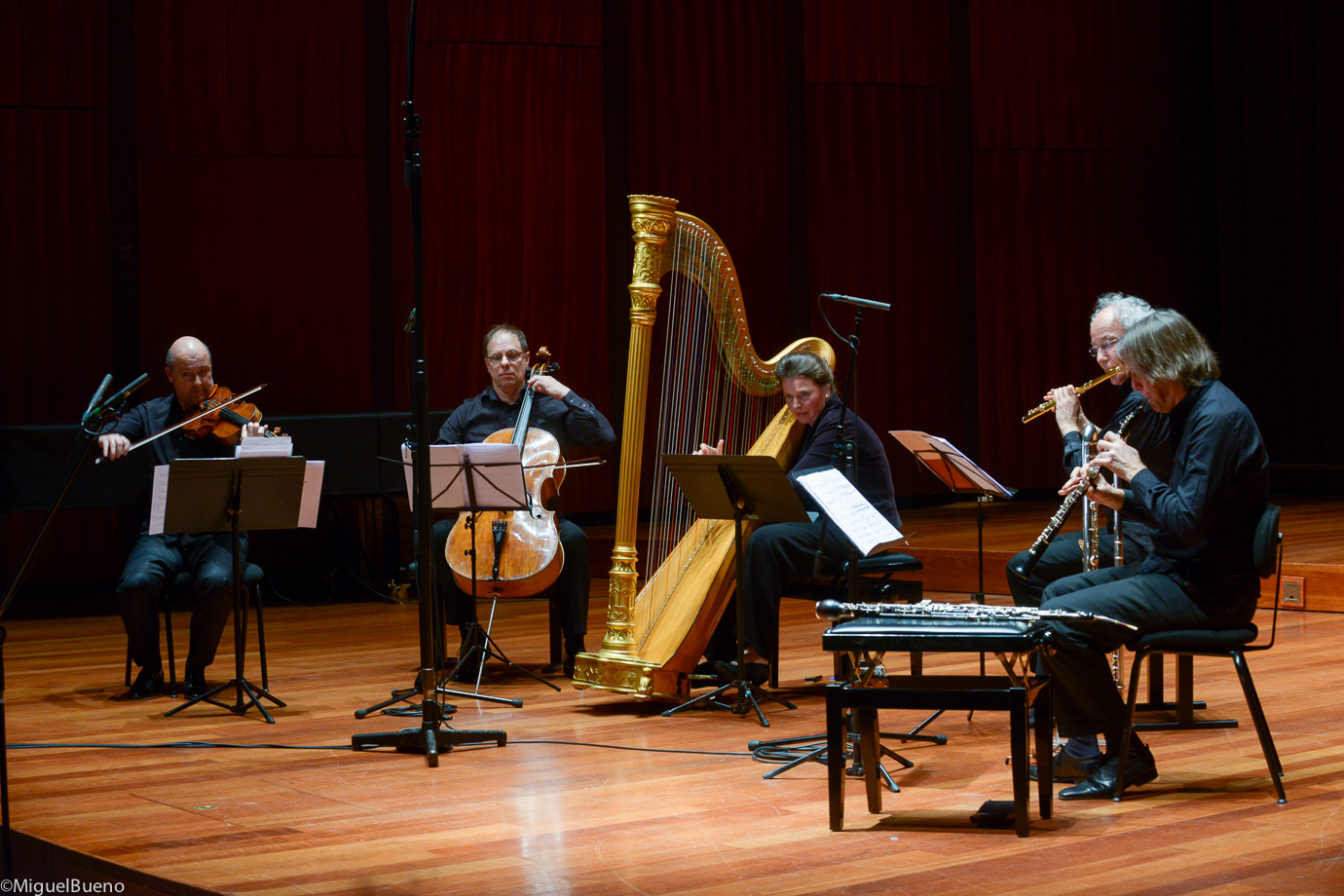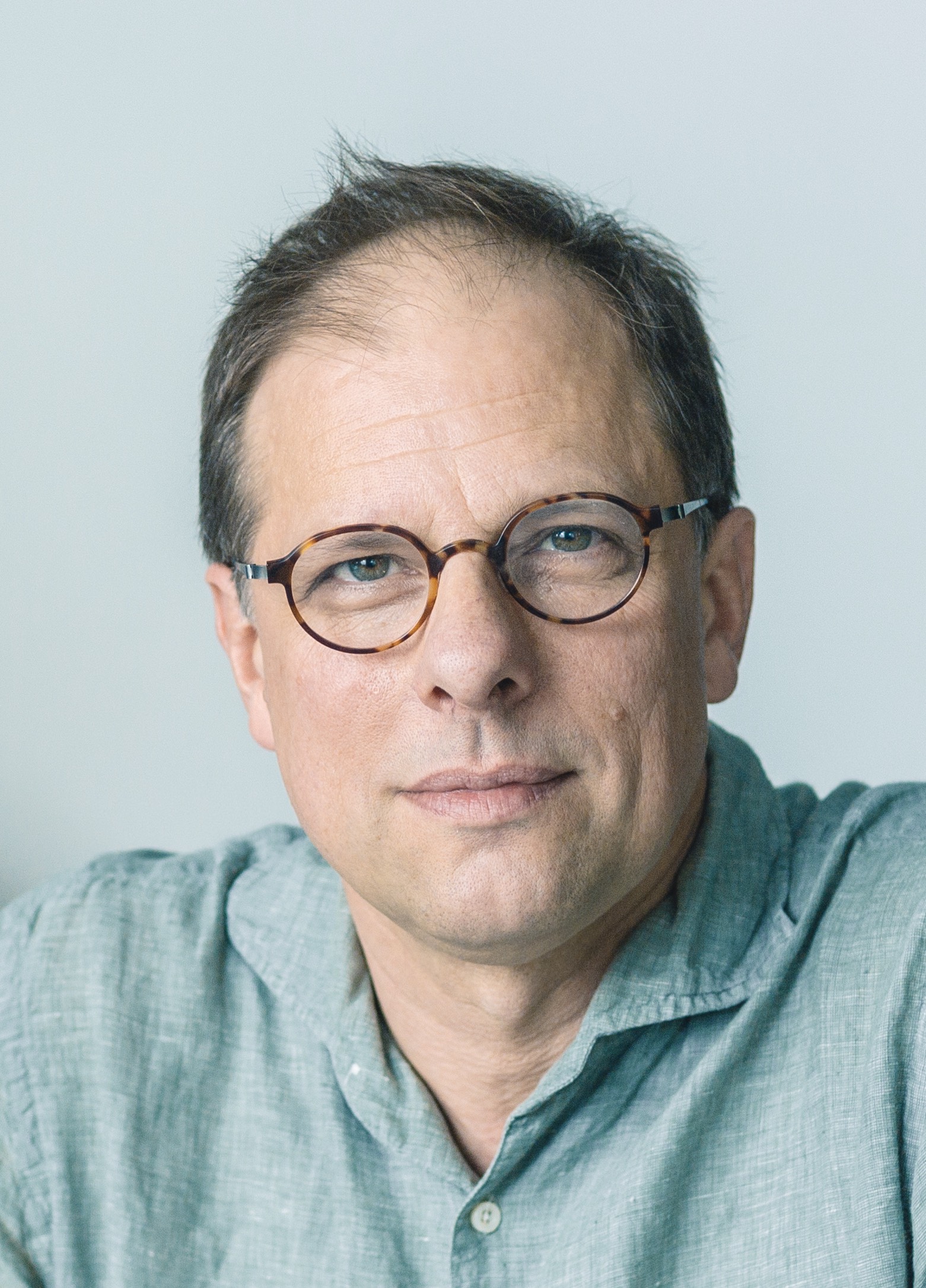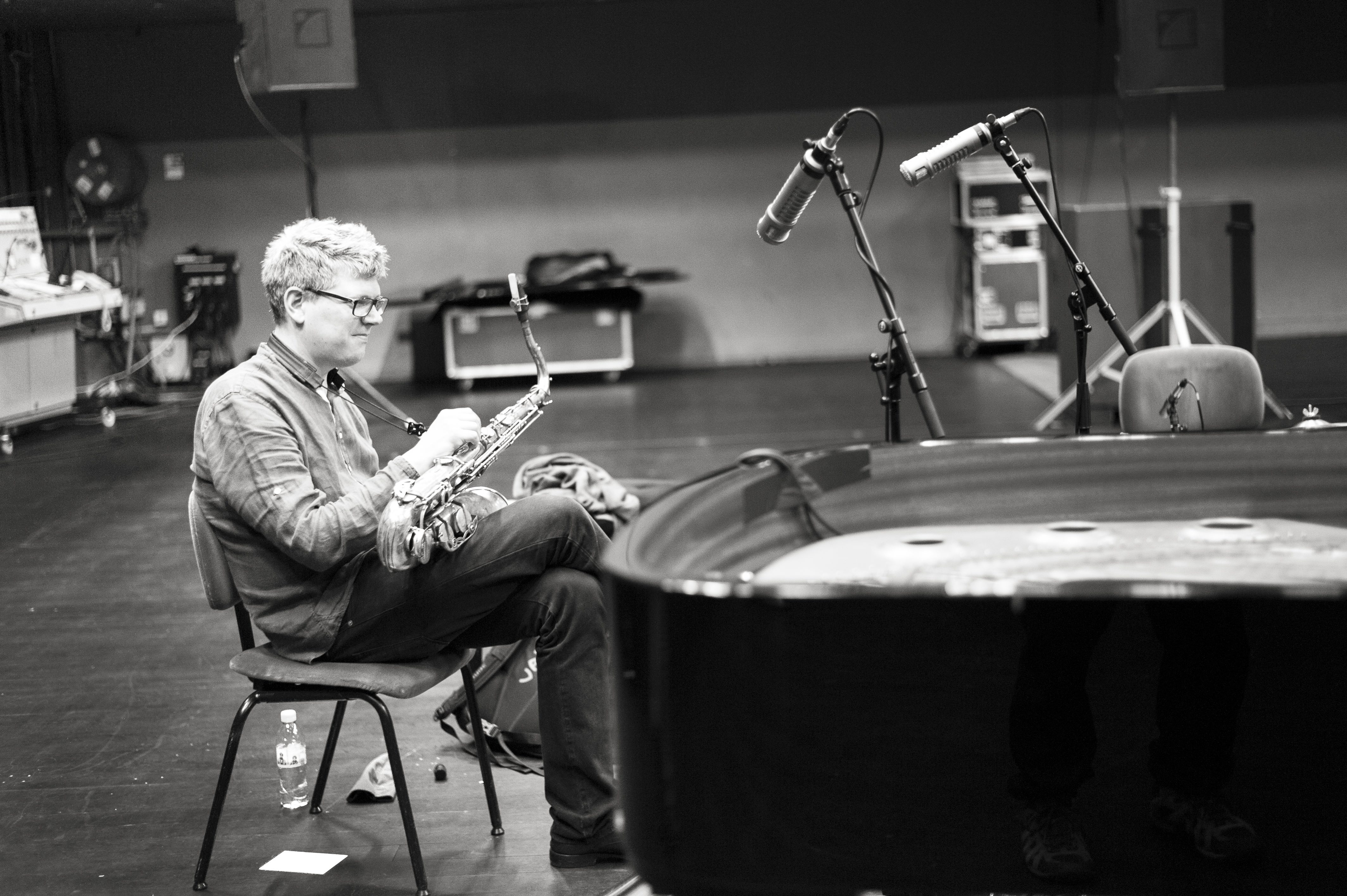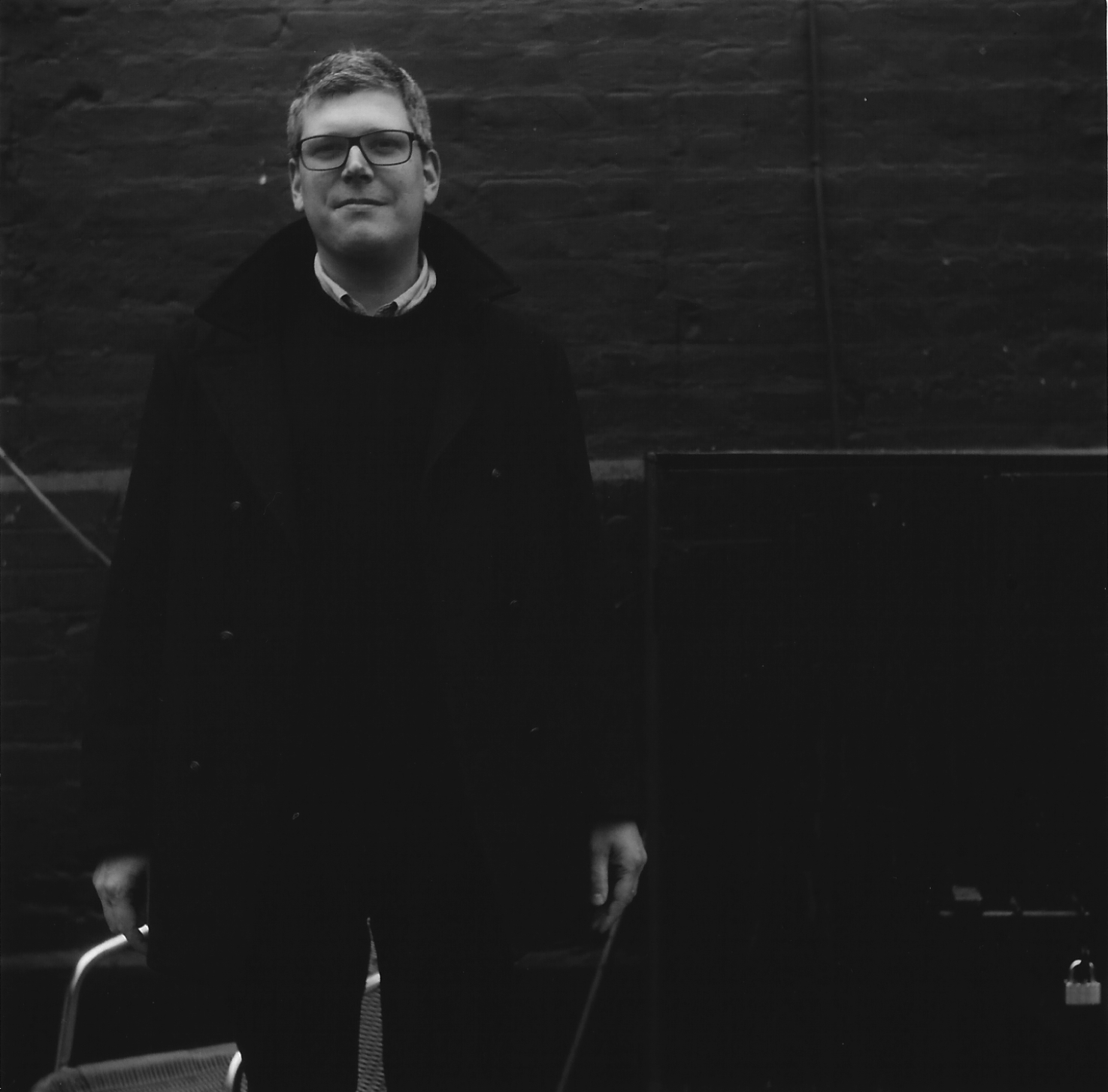2022. After forty years and 14 albums together, the duo consisting of sound tinkerer Boris Blank and frontman Dieter Meier, with his sonorous voice, has been radiating from Switzerland to the world.
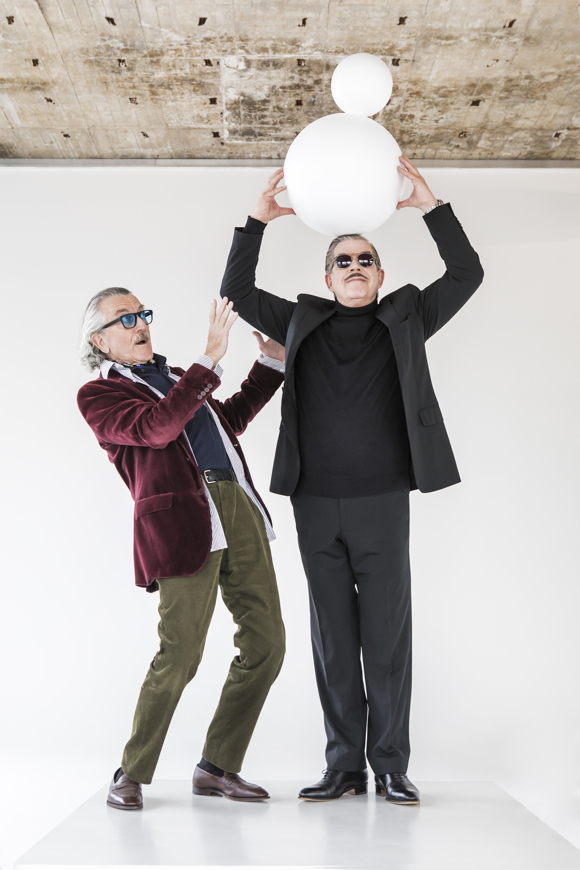
Gabrielle Weber
The rhythmic-groovy sound and word creations like “Oh Yeah” or “Claro que si” have left their mark on a whole generation of people who grew up in the eighties. Forty years later, Yello’s rhythms, word and image creations still have an impact, even though they seem to have changed very little – but only in appearance.
1981 – in ‘The evening’s young’ video, dancing, colourful glow sticks form the word Yello. A close-up of a young man’s face: Boris Blank – from the front, from the side, his whole body in shadow play, rapid cuts, different perspectives, strong colours, then Dieter Meier at the microphone, monochrome colours changing in the background. Everything is coloured over, flows away and starts again. Cross-fades, cuts, light and colour. The sound is rhythmically varied, accompanied by spoken word singing on one pitch. An audiovisual art product that exploits its possibilities musically and visually in an experimental way but without overdoing it: simple, playfully light, elegant, self-confident and self-ironic.
Yello: The young, Video 1981
This is how Yello presents itself through the years: Blank creates the soundscapes from samples and rhythmic patterns, while Meier provides visuals and voice. Meier likes to say of himself that he is an amateur, that he has never learned anything artistic and that everything happens by pure chance, Blank, on the other hand, describes himself as a sound painter and lovingly gives his samples individual names.
If the video for The Evenings Young can look homemade, ‘Bostich’ from 1984, the song that topped the worldwide charts as a “natural born hit” on vinyl Maxisingle, is more sophisticated: with Blank and Meier as main characters, this time accompanied by rhythmically dancing devices and machine parts. It comes across as very light, with an indie touch.
Yelllo: Bostich, Video 1984
The eighties also saw the birth of Music Television, MTV, in New York: with some 50 regional spin-offs, the new distribution channel consolidated numerous pop careers. Yello’s audiovisual orientation is naturally suited to this new medium and the duo exploits it not “only” for music videos, but also to spin humorous and subversive bizarre stories, such as in the performance Dr. Van Steiner from 1994, where Blank, as rainforest researcher interviewed by Meier, plays hidden sounds and mimics them.
Yello Video@MTV: Dr. Van Steiner, 1994
These videos are cult, all the more so because Yello – in contrast to many other bands – deliberately avoids live concerts: after a few early gigs in Zurich, still as a trio – with founding member Carlos Peron – and a first legendary gig in 1984 at the Roxy DJ club in New York, Yello made itself scarce until 2016: for the album toy, when major sold-out gigs started again at Berlin’s Kraftwerk with a wind ensemble.
The fact that Yello was labelled Swiss export pop band, also through this new medium, does the duo hardly any justice, as Yello is an art project that defies common classifications and Blank and Meier were part of the experimental scenes before that. Meier attracted attention with absurd actions in Zurich and New York in the 1970s or at the Documenta in Kassel in 1972 and even represented Switzerland at the Swiss Avantgarde show in New York’s Museum of Modern Art in 1971. His subversive side can be heard in some of Yello’s music. Blank is an electronics pioneer and sample virtuoso, who started out in Zurich’s and London’s experimental electro-underground scene, inspired by jazz and new music legends such as John Coltrane, Pierre Boulez and György Ligeti. He displays the spirit of innovation into Yello’s sound paintings, to which Meier adds his deep voice.
Prizes from different corners
The prizes the duo has been awarded with over the years have come from different corners: Art Prize of the City of Zurich in 1997, Swiss music award for the album touch yello in 2010, Echo Prize for 35 years of Yello in 2014, to name just a few. The thick anniversary volume “Oh Yeah!”, published in 2021 with a simple black-and-white cover, Yello artfully looks back on 40 years of joint history, both musically and visually.
In the music projects that Blank and Meier pursue alongside Yello, the two explore other sides and personalities. Meier uses his voice differently in his band Out of chaos, which he founded in 2012 and for which he also composes, while Blank integrates other voices into his own projects and digs into his rich sound library with a different focus. In 2014, for example, he worked closely with singer Malia for the album Convergence, or – in the same year – he recycled and digitised old analogue pieces from the pre-Yello era for a limited special edition in all formats – vinyl, DVD, CD, cassette, in combination with own videos for Electrified. With today’s digital tools, he likes to experiment both visually and acoustically.
Sophisticated, catchy rhythms and soundscapes, combined with crisp lyrics and colourful visuals that come across as unpretentious, mixed with subversive irony and light elegance. Yello maintained this tone and image throughout 14 albums and successively, the duo adopted new technical tools and played with digitalisation.
Yello, Wabaduba, point, Video 2020
Yello, Wabaduba, point
2020: On Wabaduba their latest release and 14th album, Meier and Blank dance in sync: both around seventy years old, in a simple computer-animated, black-and-white sci-fi big-city backdrop, Meier in a suit and Blank in James Bond look, black turtleneck sweater and sunglasses. The world passes by – Meier and Blank stay – and surprise us again and again.
Regarding Yellofire, an app with which anyone can generate Yello-like sounds, developed by Blank and launched only a few years ago, Dieter Meier says: “Maybe there will be live performances with it – we still have some 30 years ahead of us.”
The two gentlemen are cool and remain true to themselves. A brand that changes gently with the times, skilfully exploits each and every new media development and yet always remains unmistakable: that’s what makes Yello trendsetters and a comprehensive art project to this day.
Gabrielle Weber
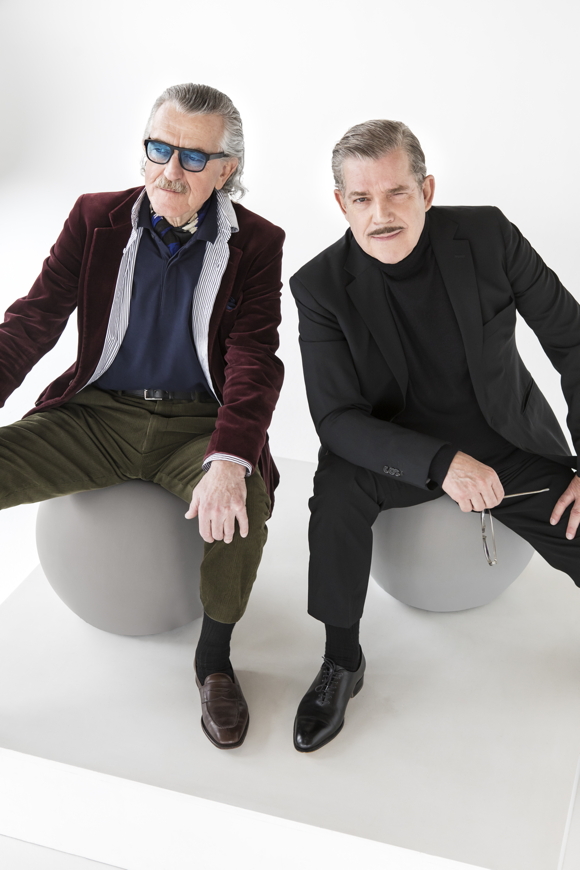
Yello’s and Boris Blank’s neo-profiles contain previously unreleased videos, including for example ‘The pick up’, where Boris Blank blends autobiographical material with sound and image experiments to form a personal narrative.
40Jahre Yello – Oh Yeah!: Ed. Patrick Frey; Boris Blank: Electrified 2014; Boris Blank&Malia: Convergence 2014; Malia; Dieter Meier: Out of chaos; Label Suisse, Carlos Perón
Grand Prix Musik: Yello
Other Swiss Musikprices:
L’Orchestre Tout Puissant Marcel Duchamp
Fritz Hauser; Arthur Hnatek; Simone Keller; Daniel Ott; Ripperton; Marina Viotti
Spezialpreise Musik:
AMR Genève; Daniel “Duex” Fontana; Volksmusiksammlung Hanny Christen
The price celebration will take place on September 16th September in Lausanne during Festival Label Suisse.
broadcasts SRF 2 Kultur:
Musik unserer Zeit, 27.7.22., 8pm: Yello – Gesamt-Kunstprojekt erhält Grand Prix Musik 2022, Redaktion Gabrielle Weber
Passage, 28.8.22, 3pm
MusikMagazin, 14./15.5.22: Yello – Das Schweizer Elektropop-Duo bekommt den Grand Prix Musik, Redaktion Annelis Berger
neo-profiles:
Yello, Boris Blank, Swiss Music Prize


